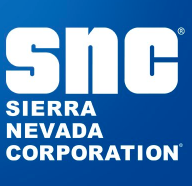Electrical engineers have a multitude of choices when it comes to choosing a career path. There is the world of startup tech, the old guard of consumer electronics, and — of course — the opportunity to work on machines that make children want to become engineers in the first plane: rockets, planes, and satellites.
The opportunity to combine childlike wonder with meaningful impact has always made the aerospace and defense industry a top spot for engineers.
But did you know that there are a ton of other benefits to working in aerospace and defense? The industry not only offers you opportunities for accelerated growth but also the opportunity to develop deep expertise.
To get the scoop on why so many electrical engineers and engineers-in-the-making choose the aerospace and defense industry, we spoke with two managers from Sierra Nevada Corporation (SNC) — a company that builds and modifies spaceplanes, airplanes, satellites, and way more. Here’s what they told us.
You Can Work On High-Impact Projects Right Away
Derek, now a manager at SNC, started his career at an aviation startup. As that job wound down, he came to SNC because he wanted to work at an organization with superior resources and opportunity to work on the types of projects that mattered to him: high-impact, innovative products.
Some of those products include spacecraft, unmanned systems, and, for Derek’s team, fire-fighting planes.
“The state of Colorado enlisted our help a few years ago to develop a firefighting aircraft. We’ve got a couple of fielded firefighting aircraft for them right now,” said Derek, an Electrical Engineering Manager in SNC’s Intelligence, Aviation, and Security business area.
Some of the aircraft’s capabilities include providing thermal and optical views of high-risk fire zones. This allows firefighters to see hotspots in real time and provide rapid response to areas to minimize impact to residents, property and natural habitat.
“I actually had the complete opposite story as Derek,” said Zach, a Director of Engineering in the same business area. “I came from a very large defense contractor, and I felt like I wanted a more agile workforce. I wanted the opportunity to make a difference. And I needed a small environment to do that in.”
Smaller, of course, is a relative term when it comes to SNC. The company has about 4,000 employees and is constantly adding new talent to the team. Zach, however, admired the company’s ability to grant independence to their nimble teams, while also providing them with the guidance they needed to actually succeed.
“As far as electrical engineers’ roles, you’re doing a lot of system-level design, architecture, wiring diagrams, schematics, and development design,” Derek said.
Engineers have a tangible impact on the end-product, and seeing that — for example — on a plane that helps fight wildfires is a pretty amazing outcome for someone at any stage of their career.
Learn From A Fast-Paced, Innovative Team
Don’t worry if any of this sounds intimidating. It’s only natural, the engineering veterans tell us, because no one is an expert electrical engineer on day one. That’s one reason why the team at SNC emphasizes a teaching culture.
Willingness to learn and adaptability are two of the most important qualities SNC looks for in a candidate. Employees are expected to ask for help when they need it and pick up skills quickly.
“Especially for new college grads, the expectation isn’t that you know everything; it’s that you’re willing to learn and work hard on the stuff that you don’t know,” Zach said.
Work With Managers Who Will Help You Move Up And Meet Your Goals
As for growing in your career as an Electrical Engineer at SNC, Zach says, “the sky’s the limit.”
“We, as managers, are personally willing to work with anybody to get them where they want to go,” Derek said. “If there’s a path they want to take, then we’ll help get them where they need to be or tell them what they need to work on to get there.”
That means mentorship, on-the-job training, and supporting a culture of learning throughout the organization. After all, when you work on cutting-edge products involving spacecraft, airplanes, and more, it’s a team effort. Further, the managers at SNC believe that training and guiding people helps them excel at their jobs – and that is part of what makes them so successful.
“As managers, we want to see people be as happy as possible,” Derek said. “When our team is happy and motivated, they can do amazing things — and we want to foster that.”
Moving up doesn’t necessarily mean organizational management (like the jobs Zach and Derek have). You could hone your electrical engineering expertise with technical program management or the company could help you secure advanced training and certification from the FAA (and other organizations) to make you even more of a subject-matter expert.
One of the best things about working in the aerospace and defense industry is the culture of training and dedication to learning. Constant innovation and high stakes have led to an extensive growth at companies like SNC — and the company’s size and management philosophy make it the perfect place to flourish.
Want to learn more about where your career could go as an electrical engineer? Check out Sierra Nevada on WayUp!





